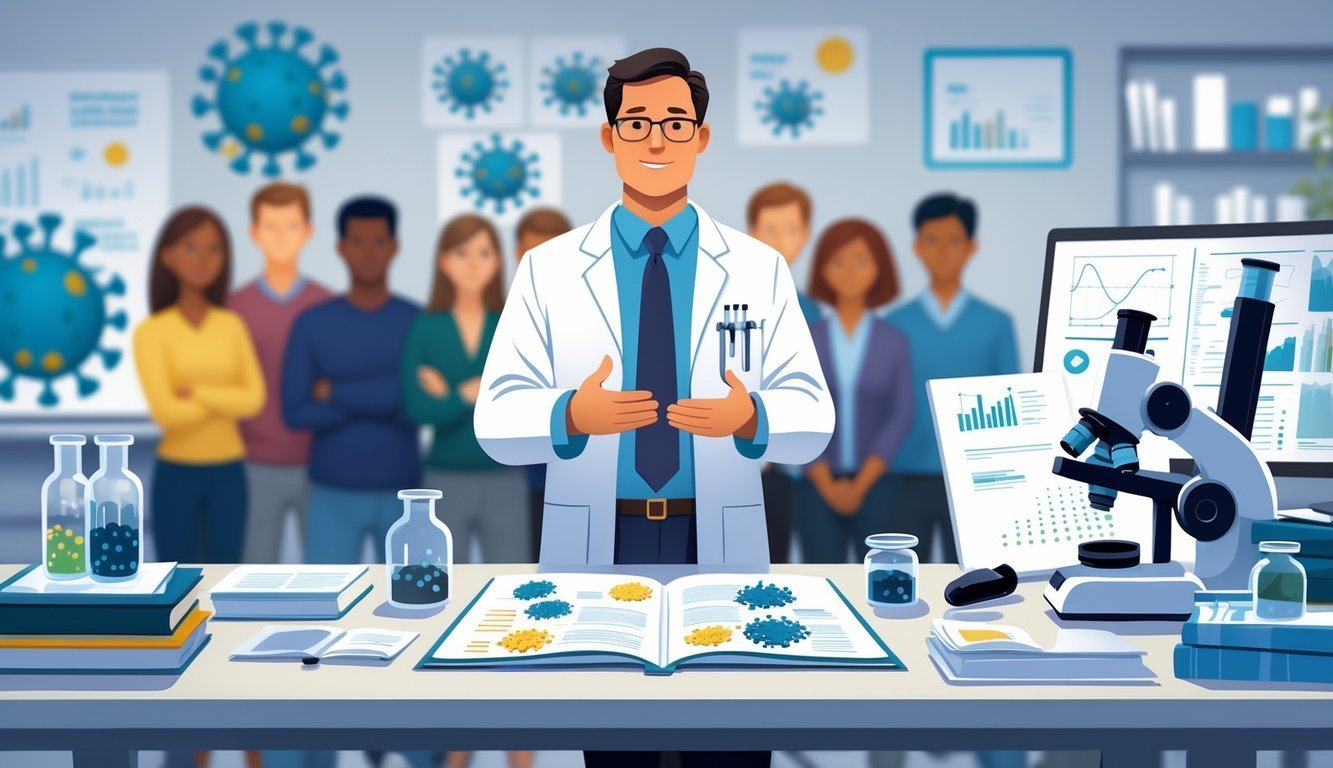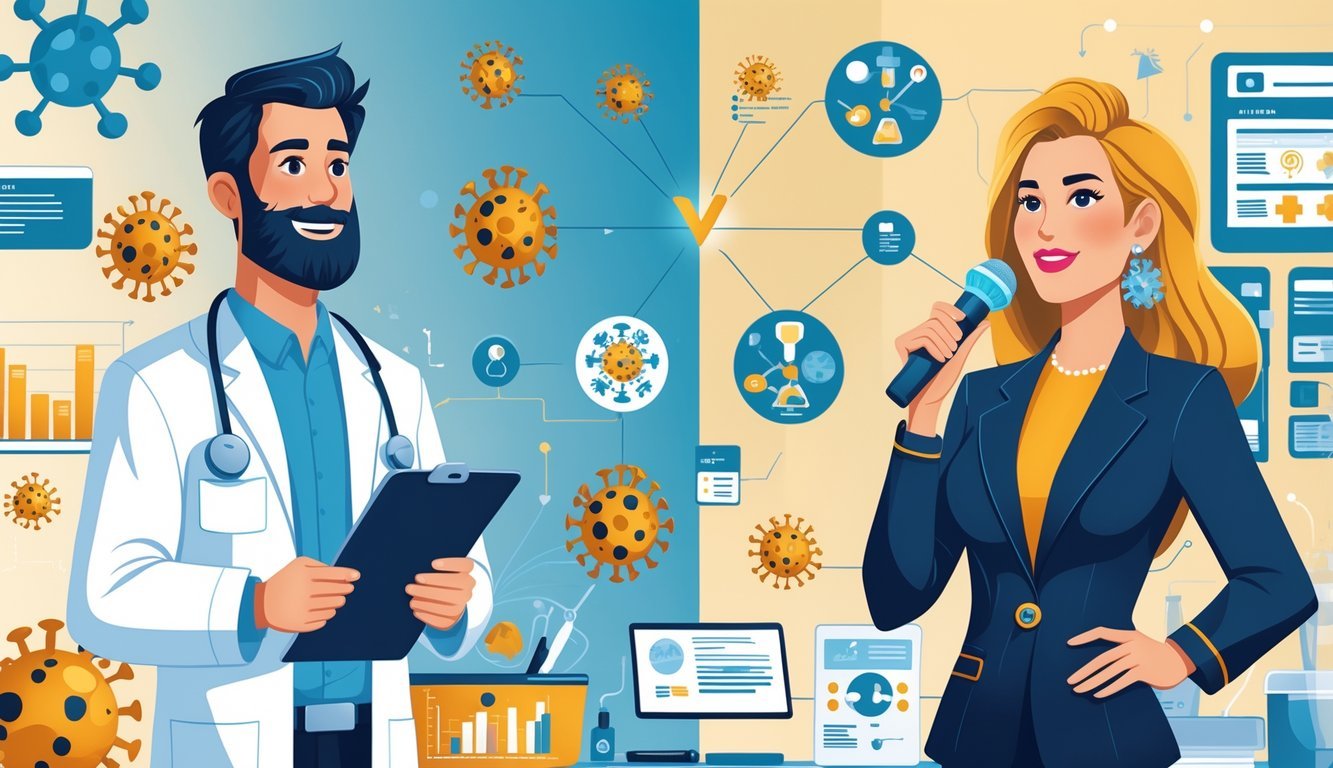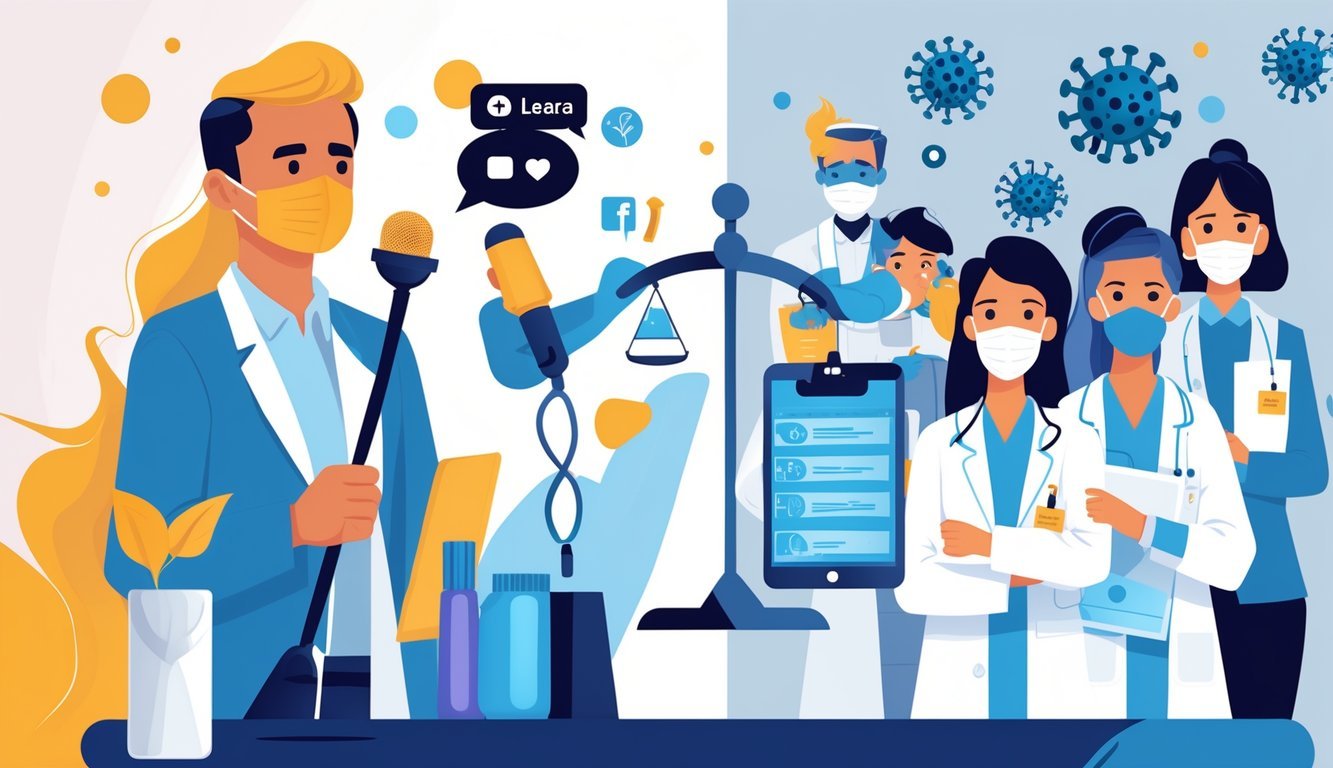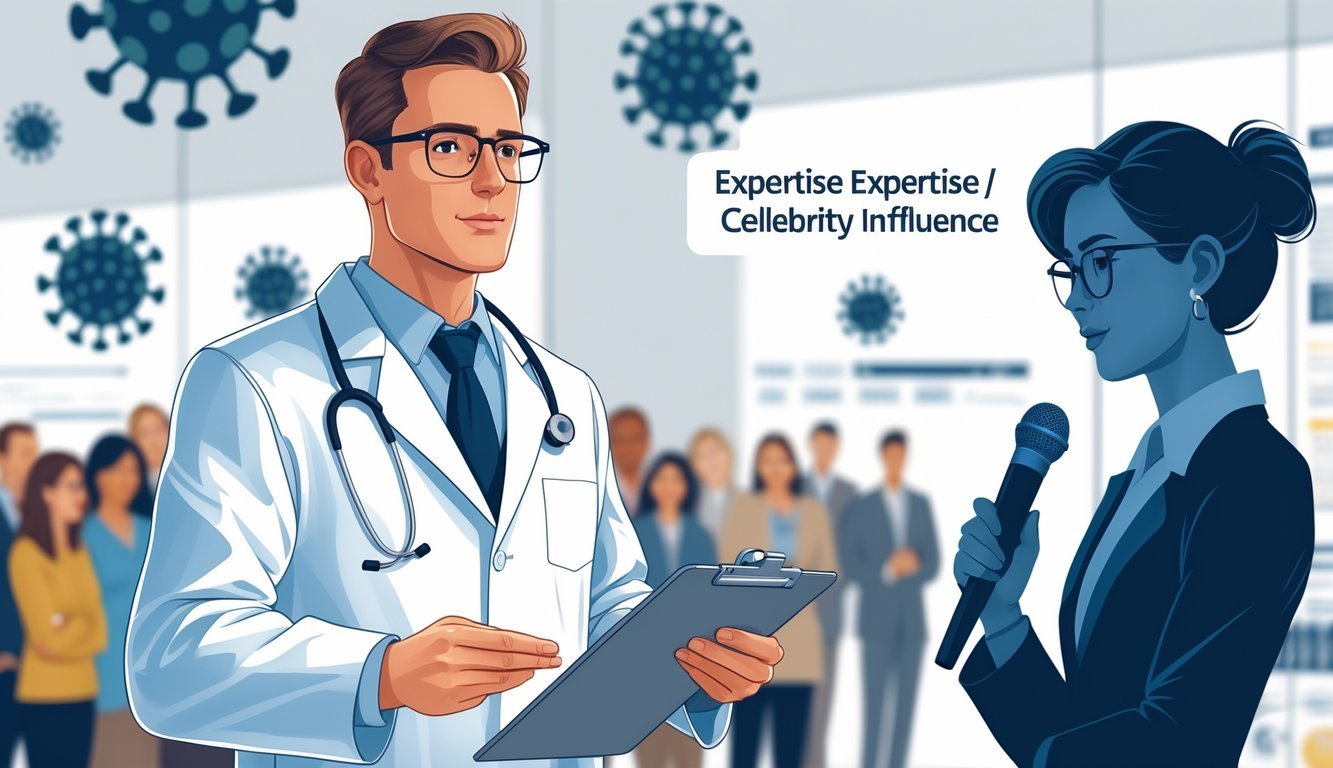PsychNewsDaily Publishers
100 Summit Drive
Burlington, MA, 01803
Telephone: (320) 349-2484
PsychNewsDaily Publishers
100 Summit Drive
Burlington, MA, 01803
Telephone: (320) 349-2484
Expert advice on COVID-19 is more reliable than celebrity opinions, as it is grounded in scientific research and helps individuals make safer health decisions.

When you’re looking for COVID-19 advice, it’s easy to spot celebrities chiming in with their opinions. Still, studies show that advice from science and health experts is way more reliable and trustworthy than anything you’ll get from a famous face.
The pandemic really hammered home how much better it is to follow guidance rooted in facts and research instead of whatever’s trending.
Celebrities might grab your attention, but that doesn’t mean their advice leads to better health decisions. Experts actually dig into data and use careful study to explain risks and how to protect yourself.
That kind of knowledge is what keeps you and your community safer during a health crisis.
If you understand why expert advice matters more, you’re better equipped to make smart choices when you hear all sorts of COVID-19 opinions. Science plays a huge role in guiding public health, and honestly, it just makes sense to trust people trained for this stuff.

When you’re searching for advice during a pandemic, the source really matters. Experts build their recommendations on data and research, while celebrities might not have the background.
Knowing the difference can help you make safer choices.
Public health experts train for years and keep up with current research. They study how diseases spread and how to control them.
Their advice on things like vaccines, masks, and social distancing comes from careful analysis.
You can trust experts because they want to protect your health with facts, not opinions. They also update their advice when new findings come out, which helps keep you safe as things change.
Celebrities can spark your interest in health topics. Sometimes, when they support vaccines or safety measures, people listen.
But their influence depends on whether people trust them.
Celebrity endorsements might help messages reach more people, but they don’t replace real expert guidance. Without the right background, public figures sometimes spread mixed messages or just add to the confusion around COVID-19 safety.
If you follow celebrities who lack health expertise, you might end up with the wrong information. During COVID-19, some public figures shared unproven treatments or downplayed risks.
This led some folks to ignore important safety steps.
Misinformation can hurt by lowering trust in science and slowing down vaccine uptake. If you stick with clear, expert-based advice instead of popular opinions, you’re less likely to get sick or spread the virus.

You probably noticed how celebrity messages sometimes clashed with what experts said during COVID-19. The way information spread online, especially on big platforms, shaped what people trusted and followed.
Consent and privacy also affected how health advice reached you.
Donald Trump used social media and speeches to share COVID-19 info during the pandemic. Some of his statements mixed accurate facts with misleading ones.
He promoted unproven treatments like hydroxychloroquine, which left a lot of people confused.
He often focused on rallying support for the MAGA movement, which shaped how certain groups viewed the virus. This made it harder for public health experts to get their messages across.
Trump’s huge audience showed just how powerful celebrity voices can be—and how risky it is when their advice doesn’t line up with science.
Yahoo and similar platforms played a big role in spreading both official health advice and celebrity opinions. They mixed news stories, social media, and ads to reach millions.
But that mix sometimes forced you to sift through conflicting messages.
You might see headlines from experts right next to celebrity claims with no evidence. Yahoo used cookies to personalize your feed, which helped sometimes, but also raised eyebrows since those cookies tracked your behavior.
Some users found that kind of tracking pretty intrusive.
When you visit health websites or apps, they usually ask for consent to store cookies. These little files help personalize content but can also collect your data.
Without clear consent, you might get tracked or bombarded with ads you didn’t ask for.
Spam emails and messages promising miracle COVID cures became a headache. Most came from unofficial sources trying to cash in on people’s fears.
Being careful about where you get your health info helps you avoid scams and keeps your data safe.
Stick to verified sources, and pay attention to cookie and consent notices if you want to control your data and stay informed.

When you look for COVID-19 advice, you probably want to know where it’s coming from. Trustworthy sources ground their guidance in research and facts—not just popularity or opinions.
Medical experts spend years studying viruses and diseases. Their advice comes from science and real evidence.
Famous people might not have the right background. Their opinions are personal and not always accurate.
Experts use research methods and scientific data to check facts. Their training helps them understand how the virus spreads and what actually works.
This careful work means their advice is tested and reliable—not just a guess or a hunch.
If you follow celebrity advice, you might make unsafe choices. Some celebrities spread rumors or push unproven ideas.
That can put your health—and others’—at risk. Wrong information can delay the care you really need.
Check who’s giving the advice. Look for medical credentials and sources rooted in research.
Trust info from well-known health organizations or experts who study viruses for a living.
Popular opinion can shift and be wrong. Health experts base their advice on studies and real evidence.
Talking to healthcare experts helps you get clear, accurate answers for your health questions.
Start by listening to doctors, scientists, and the big official health organizations. They usually know what they’re talking about.
Don’t share things unless you’ve double-checked the facts. Stick to trusted websites, and if something feels off, maybe just ask a healthcare professional instead.